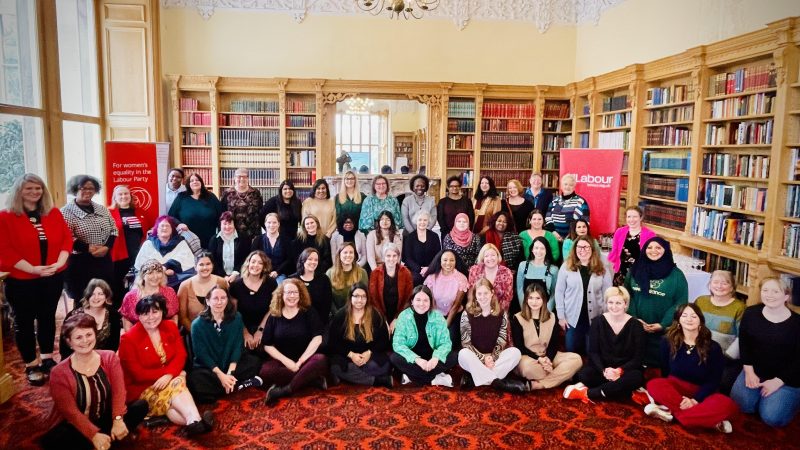
This week, applications launched to find the fifth cohort of the Jo Cox ‘women in leadership scheme’. We are looking for a diverse and intersectional group of ‘diamonds in the rough’ drawn from every region and nation in which the Labour Party organises. If you are woman with the potential to lead, if you think that six months of personal and political developmental training could change the course of your life and supercharge the impact you have on politics and beyond, and if you’re hungry to learn from – and give back to – other great Labour women, then we might well be looking for you.
Forged as a partnership between Labour Women’s Network (LWN) and the Labour Party in the weeks following Jo’s assassination in 2016, the Jo Cox women in leadership scheme is a proud plank of Jo’s political legacy. It is not designed to create an elite, or to be a parliamentary training programme (although two graduates are already in parliament, with several more selected as candidates). It is designed to take women as we find them, in the full messiness of their disproportionately demanding lives, and create a space where they are invited to think differently, to listen to and to support one another, to disagree well and to become, in the words of current LWN chair Abena Oppong-Asare MP an “army of feminist change-makers”.
As LWN director and a trainer on the course, I find it a magical experience. It is a privilege to witness friendships being formed and lightbulb moments being shared. The fact that Labour continues to invest heavily in the programme despite competing financial demands is evidence of genuine commitment to actualising ‘the Party of equality’ rhetoric. It is also without question the most diverse training programme in the labour movement.
There is, however, one aspect of the process I dread – deciding who should and shouldn’t be offered a place. This is a competitive course, with hundreds of applications for just over 50 places. It takes LWN and reps from Labour’s national executive committee two days to read them all. But politics involves tough choices; if you have applied before, please persist and try again. Whether you are applying for the first time or the fifth, here are my ten top tips for a good application:
- Read the form carefully and complete it in full. Applications with missing details cannot be considered;
- Be memorable. We read hundreds of applications. We need to recall you as ‘the one who X’;
- Lived experience is as relevant as any roles you have held, and a story is always more powerful than a list;
- Be honest about why you are applying. If you want to come on the course to address certain insecurities, say so. If you want something specific out of it, tell us what that is;
- If you are not ‘the finished article’, don’t present yourself as such; we may conclude you will achieve great things without the course. Equally, if you have done something amazing, please include it. We need to see your potential and we rely on you to help us;
- Be aware this is a positive action scheme. If your application suggests you face limited barriers and have plenty of political opportunity already, you may have to wait your turn;
- Apply early and thoughtfully. Every year, half the applications land at Labour headquarters in the last 24 hours (having been open a month). As a last-minute Sally myself: relatable. Alas, it usually shows in the quality of applications and references;
- Don’t apply if you are not committed to making every effort to attend. It is unfair on the party members who fund the scheme, the volunteers who give time to it, and unsuccessful applicants who desperately wanted a place;
- Don’t commodify or sanctify Jo; and
- If you are not successful this time, channel Stacey Abrams: “Do not allow your setbacks to set you back.”
Finally, one graduate describes what the Jo Cox Leadership Scheme means much better than we can. Helen Whitehead from Cohort four said: “It is no exaggeration to state that being selected for this programme changed my life. As an autistic woman, I still don’t fit in conventional politics, and I still don’t know exactly what my place is in the world – but this course showed me that I don’t have to fit and, in fact, that it’s rather important that I don’t.
“It showed me that the kind of politics I believe in is possible; that I have abilities and strengths that are important; and that it is worth every effort, and every struggle, to be able to use them.” For more information or to apply, visit our website.




More from LabourList
‘Council Tax shouldn’t punish those who have the least or those we owe the most’
Two-thirds of Labour members say government has made too many policy U-turns, poll reveals
‘Two states, one future: five steps on the path to peace for Israelis and Palestinians’